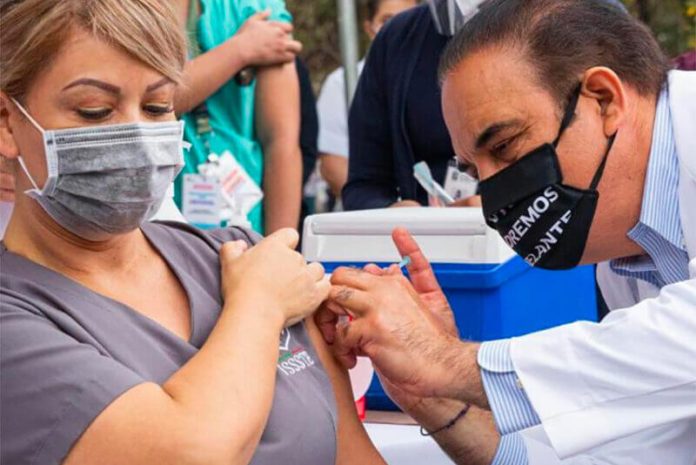The United States has announced another month-long extension to the closure of its land borders with Mexico and Canada to nonessential traffic as all three countries record rising coronavirus case numbers.
“To minimize the spread of #Covid-19, including the delta variant, the United States is extending restrictions on nonessential travel at our land and ferry crossings with Canada and Mexico through September 21, while continuing to ensure the flow of essential trade and travel,” the Department of Homeland Security (DHS) said on Twitter on Friday.
“In coordination with public health and medical experts, DHS continues working closely with its partners across the United States and internationally to determine how to safely and sustainably resume normal travel,” it added.
The United States land border has remained closed to nonessential travel from Mexico since early last year. Mexico also banned nonessential land travel from the United States but numerous reports have indicated that the rule is not always enforced. It eased restrictions last April, allowing people to cross the border for nonessential reasons in states where the coronavirus risk level was medium yellow or green low on the coronavirus stoplight map.
Three of the six northern border states – Baja California, Chihuahua and Coahuila – are currently yellow on the map, while Sonora and Tamaulipas are high risk orange and Nuevo León is maximum risk red.
Mexico has been pushing for a reopening of the border with the United States, and prioritized the vaccination of residents of border communities to that end.
However, Mexico’s ever-climbing vaccination rate – more than six in 10 adults have received at least one shot – has failed to stem a growing third wave coronavirus outbreak fueled by the highly contagious delta variant. More than 23,000 new cases were reported Thursday, while a new single-day record of almost 29,000 cases was set Wednesday.
The United States’ decision to extend the closure of its land borders with Mexico and Canada – which has also seen an uptick in case numbers despite a high vaccination rate – recognizes the dangers posed by the easily transmitted delta strain. Only 51% of Americans are fully vaccinated against Covid-19, according to data compiled by The New York Times.
The decision contrasts with that of Canada, which has reopened its land border to nonessential United States travelers who are fully vaccinated and thus far less likely to be infected with and spread the virus.
The almost 18-month-long closure of the United States’ southern border travelers has dealt a heavy blow to many businesses in U.S. border towns and cities that brought in significant revenue in pre-pandemic times from consumers who live south of the border. In turn, businesses in Mexican border cities have benefited as locals spend at home rather than across the border.
When the U.S. eventually does open its land borders it, like Canada, is likely to require visitors to be vaccinated. It already requires people arriving by air to show a negative Covid-19 test result before boarding flights.
Mexico has not imposed any restrictions on incoming travelers, a policy that has helped the recovery of the tourism sector but has also been blamed for fueling coronavirus outbreaks in tourism hotspots such as Quintana Roo and Baja California Sur.
Mexico News Daily
